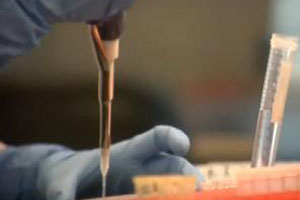A little while ago I posted a blog about what results you might find doing a Saliva Hormone Test. I thought it was only fair to write a similar blog about my favourite test of all, the Digestion Health Test! Some of you may remember a few years ago when I did this test on myself and wrote an extremely blunt, but 100% honest report about my experience (including tips to help you have an easier testing experience than I did!). Click here to read that particular blog. 😉
So what results are you likely to see on your digestion health report? Obviously everyone is different, which is why we test in the first place! Testing shows us exactly what we need to focus on, and helps us choose the natural herbs and supplements we use. There is not one particular herb or even one naturopathic combination that kills all the different types of bad bacteria, parasites and fungus out there. Even though I have never seen two identical tests, we do tend to see some trends. Here is what you may find out on your digestion health test!
Pathogenic Infestation
I put this one first because there are plenty of people out there with a morbid fascination for parasites, worms and other creepy, monster-like gut bugs (myself obviously included!!). I would say in approximately 90% of the tests we do, there is at least one nasty inhabitant in the gut. That is not to say that 90% of the population have these bugs, but they are much more common than you might think! If you have suffered from digestive upset for an extended period of time, it could be that you have grown a colony that shouldn’t be there. The most common symptoms of a bad parasite or bacterial infection include loose stools, smelly stools, bad smelling gas, bloating (especially after eating), and sugar and carbohydrate cravings. You don’t need to have traveled overseas to pick up one of these hitchhikers. You can pick up these guys from the soil, water (tank, rain and spring especially), unwashed fruit and vegetables (organic too), from your partner or flatmates and from the accidental transfer of infected poop to mouth. Of course you could also get these traveling, especially if you suffer from a case of travelers diarrohea. You might find you are bringing home more than just holiday snapshots.
Low Good Bacterial Levels
In almost everyone who has come back with a bad parasite or bacterial colony, levels of the good guys have been low. This is a bit “chicken and the egg”. Did the low good bacteria levels allow the bad guys to colonise, or did the bad guys kill off the good bacteria? Either way it is almost impossible to have a bad guy when you have healthy levels of good bacteria.
Good bacteria are important for healthy digestion, and low levels can often cause some of your most common digestive complains such as constipation, loose stools, smelly gas, and bloating. Low levels of good bacteria most commonly occur from using antibiotics, or having a bad parasite or bacteria. Antibiotics used for acne or other long term courses are especially detrimental to the good bacteria. Even if you haven’t had antibiotics for years, your levels may still be low because of a history of use. If these good guys die out, they can be difficult to recolonise without specific treatment.
Short Chain Fatty Acid Imbalance
Not quite as exciting but highly important to your whole digestive health are your short chain fatty acid (SCHF) levels. These will likely be imbalanced if you have problems in the above mentioned areas. SCFA’s are produced through a combination of prebiotics (fermentable dietary fibre) and probiotics (good bacteria). Some SCFA create fuel for the cells of the gut, others increase the mucosal lining of the intestines, reduce leaky gut, and may prevent colon cancer. Certain imbalances can indicate an increased risk of colon cancer, but should not be relied upon as a diagnostic factor alone.
 Dysbiosis
Dysbiosis
Dysbiosis simply means imbalanced life. A dysbiosis factor is given to every report based on a cumulative score of ‘bad’ points and ‘good’ points. Although it is not diagnostic in itself, it is a great way to see a rating for overall gut health.
I have heard a lot of people say “I’ve got dysbiosis” like it’s an incurable disease. It’s not at all. It simply means you need to do some work to get the digestive system back on track. Dysbiosis can be easily improved through natural medicine.
Low Hydrochloric Acid Production
Although there is no measure as such for hydrochloric acid, a number of results show us just how effective your hydrochloric acid has been in preparing your food for digestion. It is not really surprising to see so many people displaying the signs of low hydrochloric acid. Stress plays a huge role is reducing our hydrochloric acid levels, and I am beginning to think that the majority of people these days have significant stress in their lives.
Low hydrochloric acid levels can set you up for poor digestion all round. It make infection from bad bugs more likely, in increased the chances of fermentation, bloating, and leaky gut. It reduces our ability to assimilate our food and get all the vital nutrients from it. Without healthy hydrochloric acid levels, I would say it is impossible to have healthy digestion.
So there is a snapshot of some of the possible areas you may find coming up on your digestive health report. In these reports we not only explain your results in detail, but also provide you with a step by step protocol to help address each one of these imbalances and get you back on the road to fantastic digestive health! For more information, or to order your digestion health test now, click here!
Rhianna
![]()

No comments yet